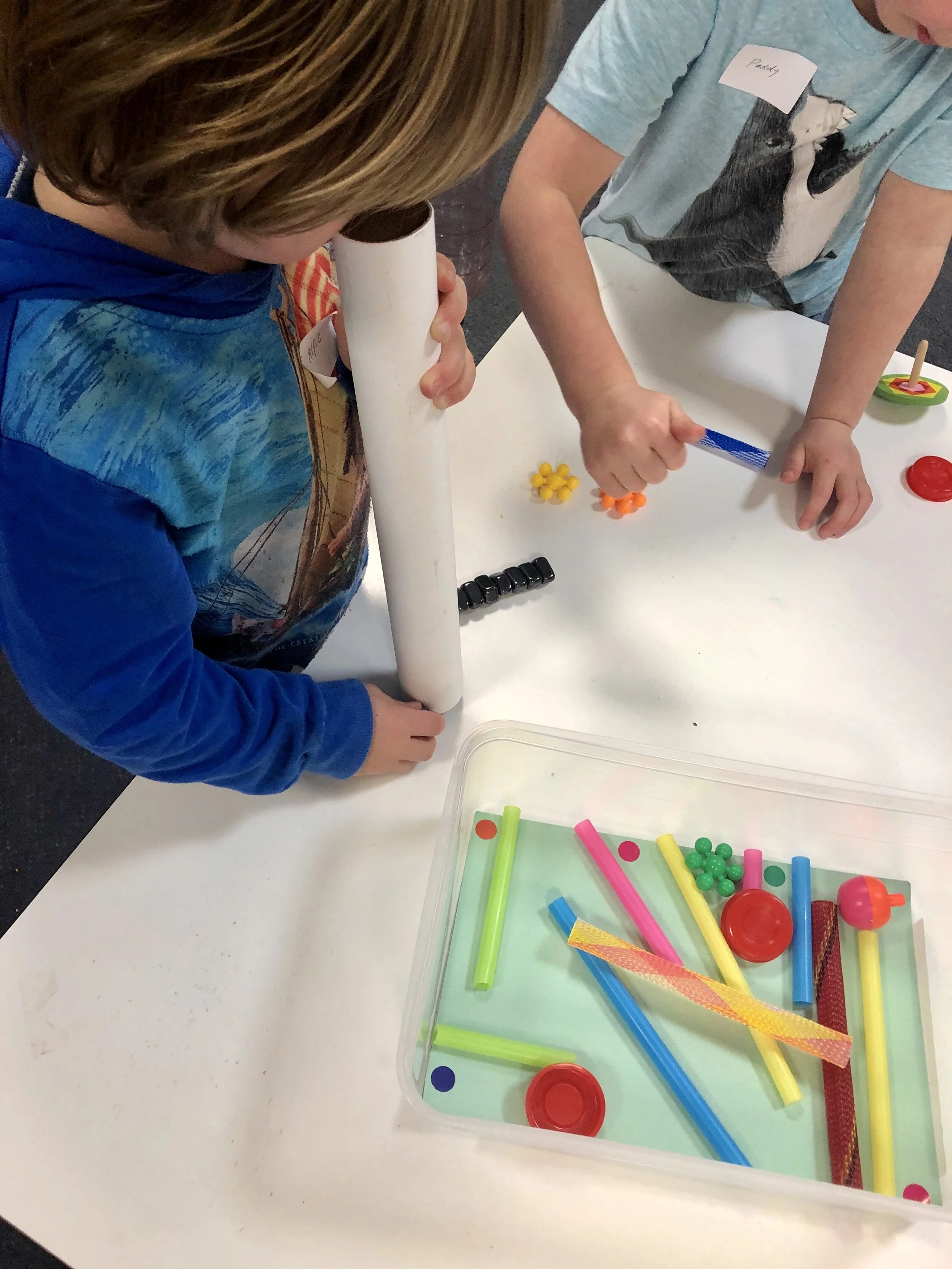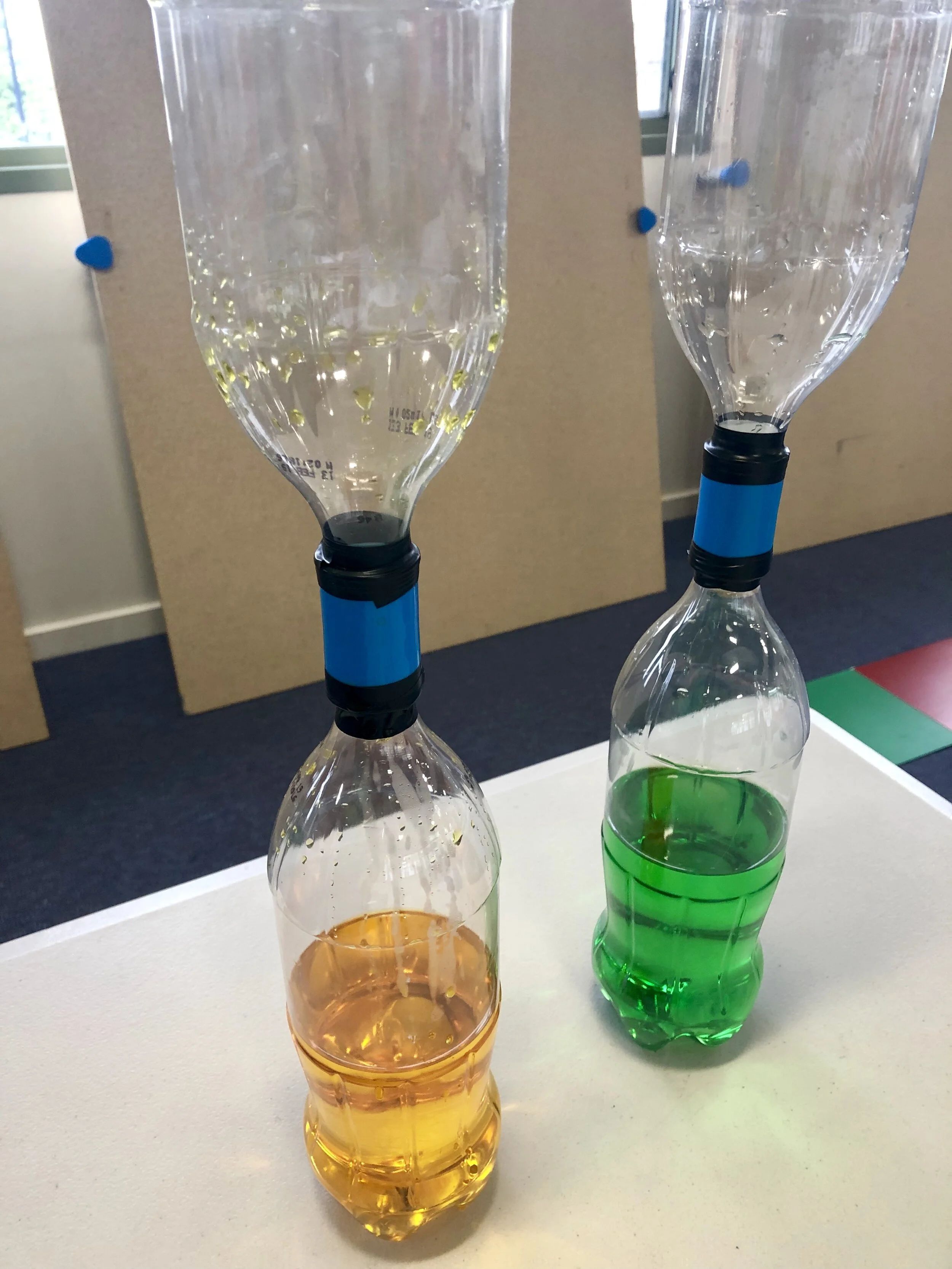SCIENCE MIX - SHAKE, SHINE, FLY













Sounds shake! Lights shine! And objects fly! All the best bits from sound, light and motion topics. This workshop includes plenty of exciting hands-on experiments and activities. Suitable for 3 and 4-year-old Kindergarten.
Explore with DISCOVERY BOXES - each child gets hands-on with their own individual discovery box of science materials, which we work through together.
Investigate Light -
explore coloured filters with torches,
look through rainbow glasses,
create funhouse bended images,
investigate tricky spoon refections,
make CD rainbows,
Discover Sound -
explore buzz-cup vibrations,
predict and test sound bowls,
make dancing sprinkles with sound,
use tuning forks to make foil trays sing,
listen to musical coathangers,
Create Motion -
launch a rocket balloon,
move with magnets that push and pull,
play with spinning tops,
make bouncing tubes jump,
master the gravity tilt maze,
create tornados in bottles!
and more...
MAKE A BOOKING NOW →
CURRICULUM LINKS;
VEYLDF Learning Outcomes
Outcome 1, Identity - through hands-on science activities, children are supported to act with self-confidence and autonomy, seeking and accepting new challenges, and demonstrating initiative by asking questions.
Outcome 2, Connection – science workshops provide an opportunity for a shared group experience, where everyone participating is included and can contribute. Children often work with partners to share science activities, strengthening their connection to classmates. Science workshops reveal to children the science they use in daily life, and connect them to the bigger world of scientific knowledge.
Outcome 3, Wellbeing - inquiry-based science activities encourage perseverance and resilience in the face of new learning situations. Children experience wellbeing and a sense of achievement through hands-on learning.
Outcome 4, Learning - science workshops encourage children to be curious and enthusiastic about their learning. When given opportunities to generate questions about situations and phenomena, make predictions, carry out courses of action and evaluate results, children are expanding their scientific thinking skills. This creates learning dispositions that are essential for 21st century children, and underpin all future learning.
Outcome 5, Communication – science workshops introduce new vocabulary through scientific language. Children express and share their ideas. Scientific communication includes children’s recording/documenting of their findings.
Victorian Curriculum Content (F-2)
People use science in their daily lives (VCSSU041)
Light and sound are produced by a range of sources and can be sensed (VCSSU049)
Objects are made of materials that have observable properties (VCSSU044)
The way objects move depends on a variety of factors including their size and shape: a push or a pull affects how an object moves or changes shape (VCSSU048)
Use informal measurements in the collection and recording of observations (VCSIS052)
Respond to and pose questions, and make predictions about familiar objects and events (VCSIS050)
Participate in guided investigations, including making observations using the senses, to explore and answer questions (VCSIS051)
Compare observations and predictions with those of others (VCSIS054)